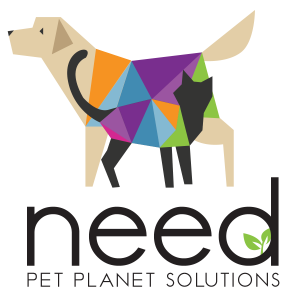By Dr. Al Townshend
The canine species has evolved as a predator. As such, they use their powerful jaws to hunt and consume their prey. Chewing keeps their teeth clean and their gums healthy, so they can effectively capture and kill.
While the domestic dog of today no longer needs to hunt for its food, there is still the natural urge to chew.
- Puppies may chew to relieve the discomfort caused by incoming new teeth.
- Older dogs have that natural urge to chew in order to keep their jaw muscles strong and their teeth and gums clean and healthy.
- Many domestic dogs chew to combat boredom and relieve anxiety or frustration. This can be unsafe and destructive for the pet and household. Every effort should be directed at understanding the cause in order to prevent this negative behavior.
It is important for Guardians to provide the right objects for our canine companions to chew, making sure they don’t choose the wrong items in the home.
Rawhide is one of the most common chews given to dogs but it is also, potentially one of the most dangerous products you can give your pet.
What are Rawhide Chews?
Many believe the rawhide used for chews is a product of the meat industry when, in fact, it is a by-product of the leather industry. The outer layer of an animal’s skin is used in the leather industry and the inner layer once cleaned and treated, is used in rawhide chew production.
The animal hide is exposed to a series of chemicals to remove the hair and fat. The skin is split and the inner layer used for rawhide chews is bleached and dried. Often artificial colors are applied and the hide is smoked or artificial smoke is added.
While rawhide chews are generally consumed, they are not considered a food item and so they are not subject to food labeling requirements. Many harmful substances have been found in rawhide; insecticides, heavy metals like lead and arsenic, chemical preservatives such as BHA end ethoxyquin, and formaldehyde.
It’s not just how rawhide chews are made that is a concern.
Skin, especially dried and treated skin, is not easily digested and the nutritional value is low. In addition, the pet has the potential of chewing off larger chunks and swallowing them. They can swell to many times their original size in the digestive tract, causing everything from a mild digestive upset to a life-threatening blockage in the gut.
There are better choices for your pet.
There are natural chew items that are far better and have less risk to your pet. Frozen raw bones, smoked bones, and items made from other parts of an animal’s body such as bully sticks which are all better choices for your pets.
Hard cheese snacks called Yak Milk Chews, Dental Chews, Nylabones, and many other chew items are available at any of the Pet Planet stores.
When it comes to chews that can be consumed, always remember:
- Match the size of the chew with the size of the pet. Too small a chew can increase the risk of the pet swallowing too big a piece.
- It is important to pay close attention to how fast your pet chews and how the pet chews to avoid the risk of swallowing a large piece. It is best to always supervise chew time.
- Fresh water should always be available for your pet.
- The proper chew item can be a safe and natural way for your pet to fulfill its instinct to chew in a safe and healthy manner.
Be sure and discuss the ideal chew items for your pet with any of the Ambassadors at your Pet Planet store.



